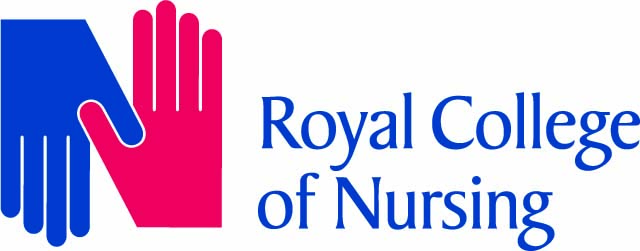Following the inclusion of genomics in the NMC Standards of Proficiency for Registered Nurses, this toolkit has been developed to support educators delivering the subject as part of their pre-registration training programmes. Indeed, as genomics becomes embedded in routine care, all nurses will need some understanding of what this will mean for their area of practice and for the treatment of patients in their care.
The resource has been designed to be both flexible and adaptable to allow educators to tailor the content to existing curricula and their own teaching styles. Equally, it is hoped that the toolkit can be used by educators with varying levels of competence and confidence to deliver genomics effectively within their teaching.
For more information about the toolkit, how it was developed and how it can be used, please see the FAQs.
Note: We are keen to hear your comments and feedback on this resource. If you have any thoughts that you would like to share, please email Dr Ed Miller: edward.miller@hee.nhs.uk.

This toolkit has been endorsed by the Royal College of Nursing.
Adult nursing
Child nursing
Case study name
Brief description here and here and here and here
Frequently asked questions
What are the aims of the toolkit?
This toolkit aims to demonstrate that genomics:
- is applicable to different nursing fields and areas of practice;
- does not need to be a standalone subject or specialism within courses or training; and
- can be integrated throughout the nursing curricula and taught at different levels of complexity.
Who is the toolkit for?
The toolkit has been created primarily for those delivering undergraduate nurse training programmes. However, it also provides guidance and examples to support postgraduate learning. Although directed at educators, the resource is presented so that it can be accessed by students and those in healthcare practice.
How do I use it?
The case studies in this toolkit have been grouped according to the nursing field they relate to. Upon selecting a case study, you will be taken to a new webpage and presented with the scenario. Each case study will also include supporting information and guidance to help frame and contextualise the story from an educational perspective, including key learning points, expanded notes and further learning.
Tags and categories
Further learning opportunities have been grouped to clarify their recommended audience and complexity:
-
- Foundation knowledge, aimed at undergraduates (first or second year)
- Extended learning, aimed at undergraduates (third year)
- Advanced learning, aimed at postgraduates
To make it easier to identify a useful case study, they have been categorised with tags in the following categories:
-
- Clinical area/specialty: For example, cancer, cardiology, rare disease
- Recognisable nursing activities/skills: For example, identification, treatment, communications
- NMC standards of proficiency platform and associated outcomes: Which relevant standards platform and outcomes can be mapped to a case study from a genomics perspective. A mapping document is provided for each case study. Please note that these mapping documents are interpretive and should not be considered definitive.
Why was it developed?
The toolkit was developed in direct response to the inclusion of genomics in the NMC’s standards of proficiency for registered nurses.
How was it developed?
To develop the toolkit, a working group was formed with representatives from key areas, including education, practice, policy and genomics. The members were:
- Dr Michelle Bishop, education lead, Health Education England’s Genomics Education Programme
- Professor Julie Green, dean of education, Faculty of Medicine and Health Sciences and Director of Postgraduate Programmes, School of Nursing and Midwifery, Keele University
- Lorna Hollowood, lecturer in nursing, School of Nursing, University of Birmingham
- Dr Edward Miller, senior education and development officer, Health Education England’s Genomics Education Programme
- Jane Niederer, lead research nurse, Surgical Research Team, Churchill Hospital
- Dr Christine Patch, clinical lead for genetic counselling, Genomics England
- Alison Pope, programme manager, Health Education England’s Genomics Education Programme
- Ethel Rodrigues, lead professional officer for education, Unite
- Lucy Tomlins, professional lead (learning and development), Royal College of Nursing North-West region
- Emma Tonkin, associate professor (genomic healthcare), University of South Wales
Case studies were either compiled from existing resources, such as Telling Stories, or created specifically for the toolkit.
Each case study has been checked by the working group to ensure that it is suitable for inclusion, reflects current or future practice, and that it has educational value. Speakers in some case studies may seem to talk negatively about the care they receive: this is not intended to highlight bad practice or deter from multi-professional education values but to demonstrate opportunities where nurses and other healthcare professionals could provide support. Where necessary, case studies are accompanied by additional information to support educators using them as part of their teaching.
Will it be updated?
Yes. This is the first iteration of the toolkit, and it will evolve as the use of genomics in healthcare grows and touch points in nursing become defined.
Has it been peer reviewed?
In addition to the working group, the toolkit has also been reviewed by nursing educators who were asked to comment on their experience with the resource, including its ease of use, adoptability and approach. A later evaluation step is planned that will focus on how the toolkit is being used by educators.
If you would like to comment or provide feedback on the toolkit, please contact us by email.
Does the toolkit have any conflicts of interest?
This resource does not conflict with legislation or regulatory guidance. It has been developed by Health Education England’s Genomics Education Programme: a publicly funded body with no conflicts of interest.
I’m completely new to genomics. Is this resource for me?
The toolkit does not focus on fundamental genomic concepts, but instead aims to demonstrate how genomics can be applied in the healthcare setting using patient examples.
Based on exploratory conversations with the working group and the Genomics Education Programme’s nursing network, there was evidence to suggest that this type of information was readily accessible.
On each case study page, however, there is supporting information that includes some fundamentals on the topic where applicable, and more foundational learning can be found on elsewhere on this website.
Are all fields of nursing represented?
Current examples of genomics in nursing practice are scarce as patient pathways either do not yet exist or are not well defined. Therefore, this toolkit is not exhaustive. As genomics becomes embedded in routine care, the role nurses will play will become clearer and, as such, more case studies from more fields of nursing will become available.
I think I have experience that could be useful for this toolkit. Can I contribute?
Yes, if you have a case study that you think would be suitable, please contact us by email.
Developing people
for health and
healthcare















